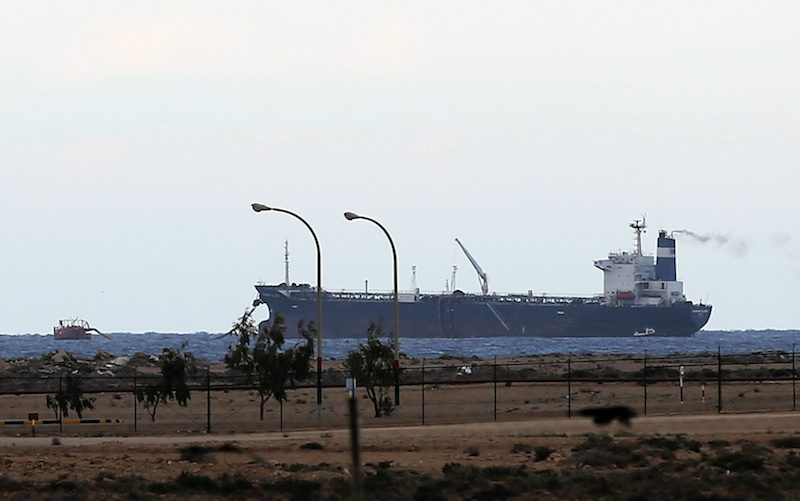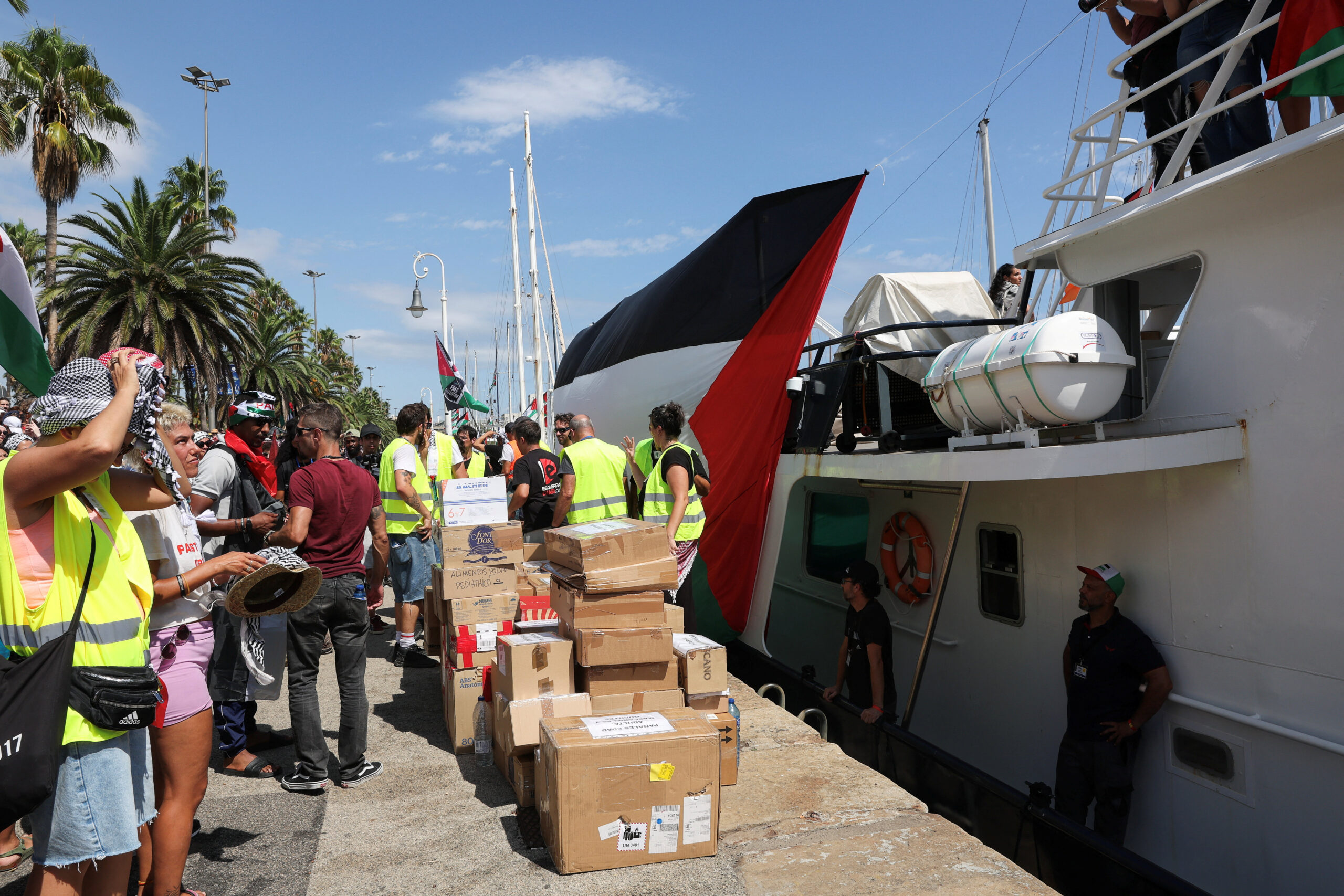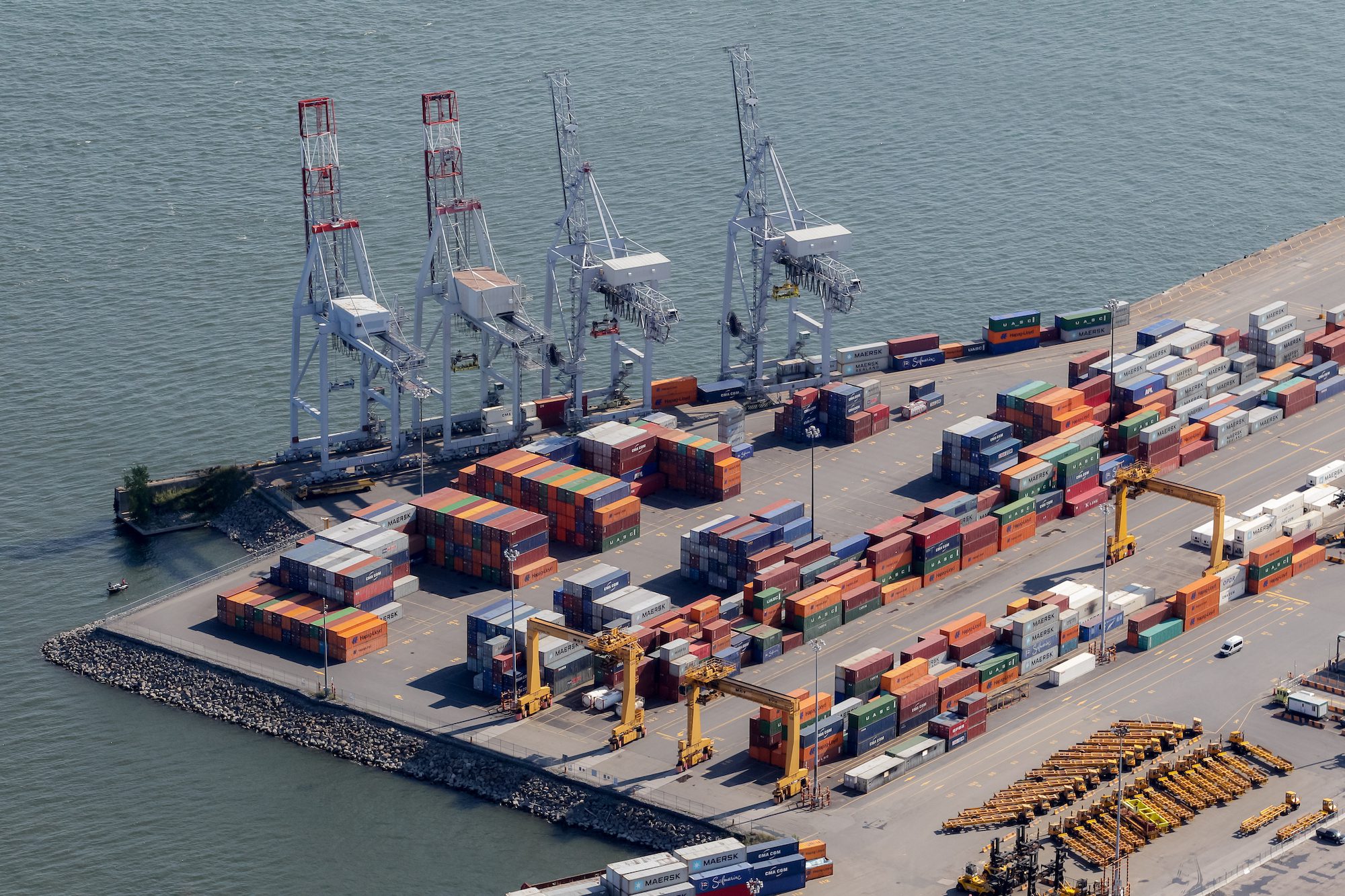The Morning Glory tanker loaded with rebel crude docked at the Es Sider export terminal in Ras Lanuf March 8, 2014. REUTERS/Esam Omran Al-Fetori

By Ulf Laessing and Ayman al-Warfalli
TRIPOLI/BENGHAZI, Libya, March 18 (Reuters) – A Libyan rebel leader accused the United States on Tuesday of behaving like pirates after U.S. naval forces seized an oil-laden tanker that had sailed from a rebel-held port in the east of the chaotic North African state.
Ibrahim Jathran’s defiant speech dampened hopes of a quick peaceful settlement with Libya’s central government to end a blockage of three oil ports his men took over in summer to press for eastern autonomy and a greater share of oil revenues.
The conflict reflects wider chaos in Libya where the government has been struggling to rein in militias that helped overthrow dictator Muammar Gaddafi in 2011 but kept their guns to become powerful political players.
On Sunday, U.S. forces stormed a tanker that had made it as far as the eastern Mediterranean off Cyprus after loading crude at the Es Sider port, one of three Jahtran’s men have occupied, and eluding Libyan government forces off-shore. The ship is now on its way back to a government-controlled port.
The Tripoli government has given Jahtran’s group two weeks to clear the ports or face a military offensive to end the port blockage, which has crippled the OPEC country’s finances.
But in a speech broadcast by a rebel television station, Jathran did not mention a government offer to hold new talks and said his group would continue its struggle.
“We will continue our fight for our right to dream of a better tomorrow for our children and families,” said Jathran, calling for the United Nations and Arab League to intervene to help the people of eastern Libya.
“We urge the United States government to refrain from siding with the extremists currently holding power in Tripoli,” he said, describing the U.S. navy operation as “piracy”.
“We call on the U.S. authorities to guarantee the safety of our sons on board and of the entire crew, and to ensure that the tanker is promptly returned to us,” he said, confirming that his men had boarded the ship after loading oil.
Jathran, based in Ajdabiya in eastern Libya, defended his repeated attempts to bypass Tripoli in selling oil. “We declare and confirm that, indeed, the majority of Libyan tribes have agreed to the necessity of taking hold of our resources for the benefit of the people,” Jathran said.
While Jathran’s oil sale proved unsuccessful this time, the episode led to the dismissal of Libyan Prime Minister Ali Zeidan, who fled to Europe last week.
Western powers, worried that Libya might fracture or slide deeper into anarchy, have been training Libyan armed forces and cajoling conflicting parties in government to work together, to little avail.
But diplomats say the nascent army would struggle in any case to take on Jathran’s men, who helped overthrow Gaddafi. He defected last year as head of a state oil protection force, taking with him his armed men.
BUDGET CRISIS
The eighth-month port blockage has knocked down oil exports, the main source for the budget and fund for basic food imports.
“We are in a very difficult situation,” said Souhail Abu Sheikha, acting economy minister. He said there was still no budget approved for 2014, adding that financial crises had been made worse by the government’s inability to collect customs duties since some border crossings were beyond Tripoli’s writ.
Oil exports have fallen to 100,000-120,000 barrels per day (bpd) in the last two weeks, acting oil minister Omar Shakmak told reporters. Exports have been well below capacity of around 1.25 million bpd since July.
Shakmak added that the El Sharara oilfield in the southwest, which can produce 340,000 bpd, was still shut down by protesters from a state security force making financial demands.
The field reopened briefly last week after a shutdown since mid-February. Libya’s current exports now come mainly from the western Mellitah port and its offshore oilfields. (Writing by Julia Payne and Ulf Laessing; Editing by Mark Heinrich)
© 2014 Thomson Reuters. All rights reserved.

 Join The Club
Join The Club











